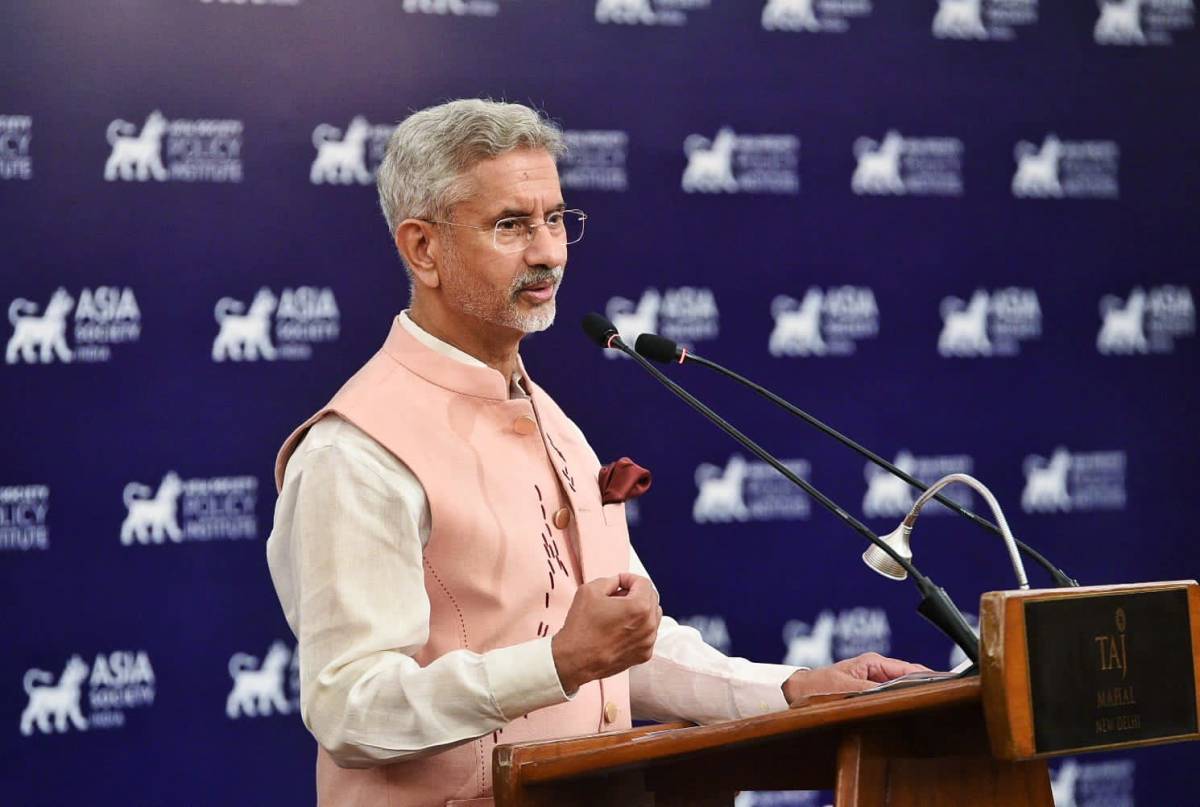EAM Jaishankar’s remarks come amid ongoing talks between the two sides to reduce tensions along the Line of Actual Control (LAC)…reports Asian Lite News
The state of the border would determine the state of relations between India and China, External Affairs Minister S Jaishankar has said.
For ties to return to a positive trajectory and remain sustainable, they must be based on the three mutuals: mutual sensitivity, mutual respect and mutual interest, EAM Jaishankar said while speaking at the launch of the Asia Society Policy Institute in New Delhi on Monday.
Arguing that much of the future of Asia depends on how relations between India and China develop in the foreseeable future, he said, “Their current status is, of course, well known to all of you. I can only reiterate that the state of the border will determine the state of the relationship”.
He also spoke about the concept of the Asian century and said, “When we speak of a rising Asia, the term Asian Century naturally springs to mind. To the sensible and sober, that signifies a greater weight for Asia in the overall global calculus.”
However, he also added that it contains triumphalist implications with which India at least shouldn’t be comfortable.
“That is why ‘rising but divided’ is such a strong concern. It is said that the pre-requisite for an Asian Century is an India and China coming together. Conversely, their inability to do so will undermine it,” he argued.
EAM Jaishankar also referred to Asia’s prospects and challenges, saying they were today very much dependent on developments in the Indo-Pacific. “In fact, the concept itself is a reflection of divided Asia, as some have a vested interest in keeping the region less cohesive and interactive,” he remarked in an apparent reference to China’s expansionist and exclusivist policies as well as aggressive posturing.
“That the global commons and the international community are better served by collaborative endeavours like the Quad apparently leaves them cold. Developing even a basic strategic consensus in Asia is, therefore, clearly a formidable task,” he added.
EAM Jaishankar’s remarks come amid ongoing talks between the two sides to reduce tensions along the Line of Actual Control (LAC).
Matters had come to a head in June 2020 when a violent face-off took place between Indian and Chinese troops in Eastern Ladakh’s Galwan Valley. Twenty India soldiers lost their lives. A large number of Chinese solidiers also died.
Since then, India and China have been engaged in talks at the military as well as diplomatic levels for disengagement along friction points in the border areas of Eastern Ladakh.
India and China had in-depth discussions for disengagement at the remaining friction points along the Line of Actual Control (LAC) in Eastern Ladakh during the 16th round India-China Corps Commander Level Meeting held on July 17.
“Building on the progress made at the last meeting on 11th March 2022, the two sides continued discussions for the resolution of the relevant issues along the LAC in the Western Sector in a constructive and forward looking manner,” said a joint press release issued after the meeting.
Interacting with the media in Thiruvananthapuram, Kerala, earlier last month, EAM Jaishankar had said India would not countenance any unilateral attempts to change the present position of the Line of Actual Control (LAC).

Leave a Reply